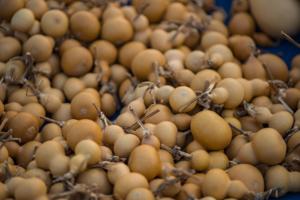Introduction
Pesticides are used in farming to control pests and protect crops from damage caused by insects, fungi, and other plant diseases. Pot growers also use pesticides to protect their plants from pests and increase yields. However, the use of pesticides on cannabis is a controversial topic, and many people have raised concerns regarding its potential health risks.
Why Do Pot Growers Spray Pesticides on their Plants?
The main reason pot growers use pesticides is to protect their plants from pests and diseases. Cannabis plants are susceptible to various pests like spider mites, thrips, and whiteflies, which can cause significant damage to the crop. These pests can eat away at the leaves, stems, and buds, reducing the overall yield and quality of the cannabis. They can also introduce plant diseases, which can spread to neighboring plants and destroy entire crops.
In addition to protecting against pests and diseases, pesticides can also increase yields by increasing the overall health and vigor of the plant. Pesticides can help to prevent nutrient deficiencies, improve soil quality, and increase plant growth rates. This can result in a larger and more potent yield, which is desirable for commercial cannabis growers.
What Types of Pesticides Are Used on Cannabis?
There are several types of pesticides used on cannabis, including insecticides, fungicides, and herbicides. Insecticides are used to control insects like spider mites and whiteflies, while fungicides are used to control fungal diseases like powdery mildew and gray mold. Herbicides are used to control weeds that can compete with the cannabis plants for nutrients and resources.
However, not all pesticides are approved for use on cannabis. The use of some pesticides is restricted or prohibited due to potential health risks. For example, the use of pesticides like myclobutanil, paclobutrazol, and carbaryl can result in the formation of harmful chemical compounds when the cannabis is smoked or vaporized.
Health Risks Associated with Pesticide Use on Cannabis
The use of pesticides on cannabis has raised concerns about potential health risks for consumers. Pesticides can leave residues on the plant, which can be ingested by the consumer when the cannabis is smoked or vaporized. These residues can cause a range of toxic effects, from respiratory irritation to cancer.
Moreover, the long-term effects of pesticide exposure are still largely unknown. Cannabis smokers may be particularly vulnerable to the harmful effects of pesticides due to the repeated exposure to smoke over a long period. Therefore, it is essential to limit exposure to harmful pesticides and to use safer alternatives when growing cannabis.
Safer Alternatives to Pesticides on Cannabis
There are several safer alternatives to pesticides that can be used on cannabis. These include biological controls like ladybugs and predatory mites, which can control pests without the use of chemicals. Neem oil and garlic spray are also natural alternatives that can control pests and diseases. Furthermore, using organic growing methods and maintaining a clean growing environment can help prevent or limit the spread of pests and diseases.
Conclusion
While pesticides can be an essential tool for pot growers in controlling pests and diseases, their use comes with potential health risks to consumers. Therefore, it is crucial for cannabis growers to use safer alternatives and limit the use of harmful pesticides. By employing organic growing methods and incorporating biological controls, growers can maintain healthy plants and ensure high-quality yields without sacrificing consumer health.

 how many times do yo...
how many times do yo... how many planted tre...
how many planted tre... how many pine trees ...
how many pine trees ... how many pecan trees...
how many pecan trees... how many plants comp...
how many plants comp... how many plants can ...
how many plants can ... how many plants and ...
how many plants and ... how many pepper plan...
how many pepper plan...





























